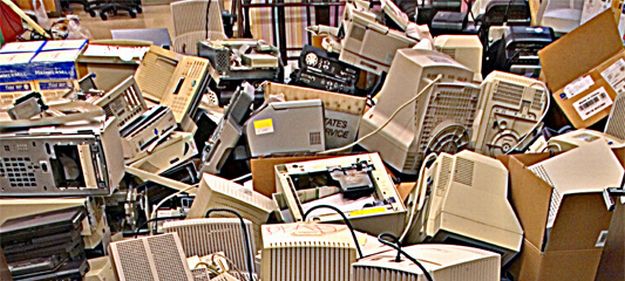SCBJ says that Mary Reading was turned on to recycling electronics by watching a tv show. She didn’t like what she saw.
She was tuned into a special about how the U.S. was exporting much of its electronic waste to underdeveloped countries for disposal.
“I didn’t like that,†the Lynnwood County native said. “I thought, ‘Maybe we can make a change here.’ â€
On a shoestring budget, Reading got a state license to recycle electronic waste in 2006 and opened E-Waste LLC in 2007 in a warehouse on Beverly Park Road, just south of Paine Field.
E-Waste’s stated mission is “to recycle your end-of-life electronics in a safe and environmentally sound manner.â€
It proved to be easier said than done.
“The first year was rough,†Reading said. “I didn’t know what I was doing.â€
To keep her operation afloat in the early days, she even kept the warehouse unheated to save money.
A positive move came when Reading linked her business with the Washington Materials Management Financing Authority, the organization that keeps track of the fees manufacturers essentially pre-pay on the sale of consumer electronics for their eventual recycling.
“We recycle 99 percent†of all processed electronics, Reading said. She audits the recycling firms with whom she does business to make sure they meet stringent state environmental rules on waste handling. She said she keeps her business dealings as close to Snohomish County as she can. Fibres International collects and bales the plastics while Pacific Topsoils finds use for the wood from old TV cabinets.
And nothing is exported to undeveloped countries, Reading said.
Photo by Alby Headrick
